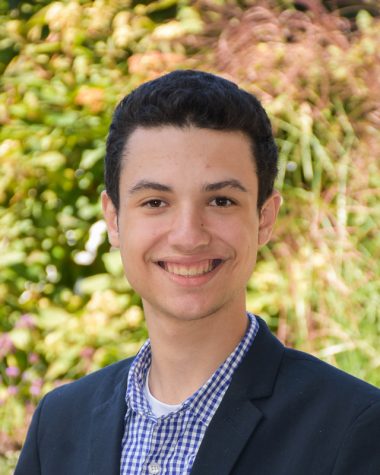Q&A: Nurse Escobar on COVID-19 Testing
April 1, 2021
Since the pandemic hit last year, new safety protocols have become standard in everyday life. Here, weekly COVID-19 testing is one of the new additions to students’ and faculty’s daily schedules.
The Gator spoke to School Nurse Beth Escobar to take a closer look at COVID-19 testing. This interview has been edited for clarity and concision.
What type of COVID tests are we administrating?
We are using a PCR nasal swab for COVID testing. So, it is the size of a Q-Tip versus the very, very long one that goes through your nose way down near your oral cavity, and people equate that with having their brain tickled, for a lack of a better phrase. So, we do the PCR test where it goes into the front area of your nostril. And it should not hurt. Many people report it tickles a little bit or it feels kind of funny, but I think we have been doing it long enough here at Brimmer that people don’t seem to be bothered by it anymore. It has become sadly routine to do [COVID testing] every week. There is a rapid test too, but we don’t allow that at the School. We want our test to kind of cook for a while.

How long does it take to get these results back?
For the PCR testing we do, often times the lab, we use a lab in Cambridge, gives us a 24 hour turn around. What we are finding is that the tests we administer at the beginning of the week, sometimes come back 12 hours later. Not a guarantee. Then as the week progresses, and I think that’s because more and more institutions and businesses are doing the testing, the labs are getting kind of swamped. With that, it is hard to do a 24 hour turn around. So, we’ve had tests that have taken about 36 hours to get back, but that is not the norm.
What is the process of getting tested?
We test students as well as faculty and staff. So, the whole school gets tested. When you come in, we ask you to blow your nose first. That clears out as much mucus as possible. Because what we are finding with the tests is that some people will get a test back that says, “Inconclusive.” That happens about every week. One or two. That could mean too much mucus on these swabs, too little mucus on the swab, a little bit too much blood on the swab, the top part of the swab is a little fuzzy and the lab does not like that either. Then, you would wash your hands. Then, you will then go see someone else that works with me that generates the labels for the little vials that I have to use. Next, I open up a cotton swab that is sealed. It is not like a box you can get at CVS. And then the person will insert it up their nose, and I ask them to move it around their nose about 5 times, touching the interior of your nose. Then you will do the other nostril as well. Then we put it swab side down. If you do it swab side up, that’s another way the lab says you are inconclusive. So, you keep it in there and I put it in a box. At the end of the day, I make a report and I have to go through every person and read off their name and then the code. Each person has a code. It changes every week. It is not like an identifying one. And then Julian Hickman, the CFO of Brimmer, he races them over to Cambridge to the lab. We do this Monday through Thursday. We do not test Friday. But it works.
How many PCR tests do you administer weekly?
Each week we do almost 500 tests a week, and we are coming close to our 10,000 administered test. We do a lot of testing. I am part of an independent school nurse’s group on an email, so compared to other schools, we do a lot more testing. Some schools don’t do any testing, and I think we have been very lucky. We have been able to catch, we have had some positives, not a lot at all. We have not had any community spread which is good.
Why does Brimmer test every week?
First, we had the financial backing from some of the members of the Board of Trustees. These tests are expensive to administer. We have to go through [before we do all sorts of reasons. Other schools do their testing that happen every two weeks. I don’t know about any schools that do testing once a month. They have this thing called pooled testing which is where they will group about 10 of the swabs into one pool. And they will test it as one thing. If it comes out positive, then they do an individual one for each of the swabs that were in that pooled group. It is less expensive so that is why some of the schools are doing it. We just decided we would ride this as long as we can. And I find it really helpful since we have been able to catch some cases. And the ones we got; the students have been asymptomatic. It is interesting, they didn’t even know they had [COVID-19.] They didn’t even know they were sick, so I am thankful that we caught it before they got sick and got other people sick.
Editor’s Note: This interview was edited for clarification purposes.























































